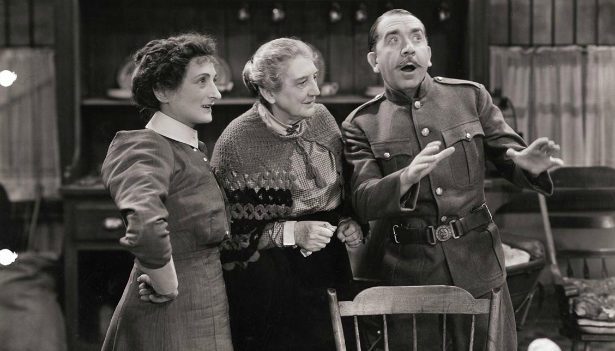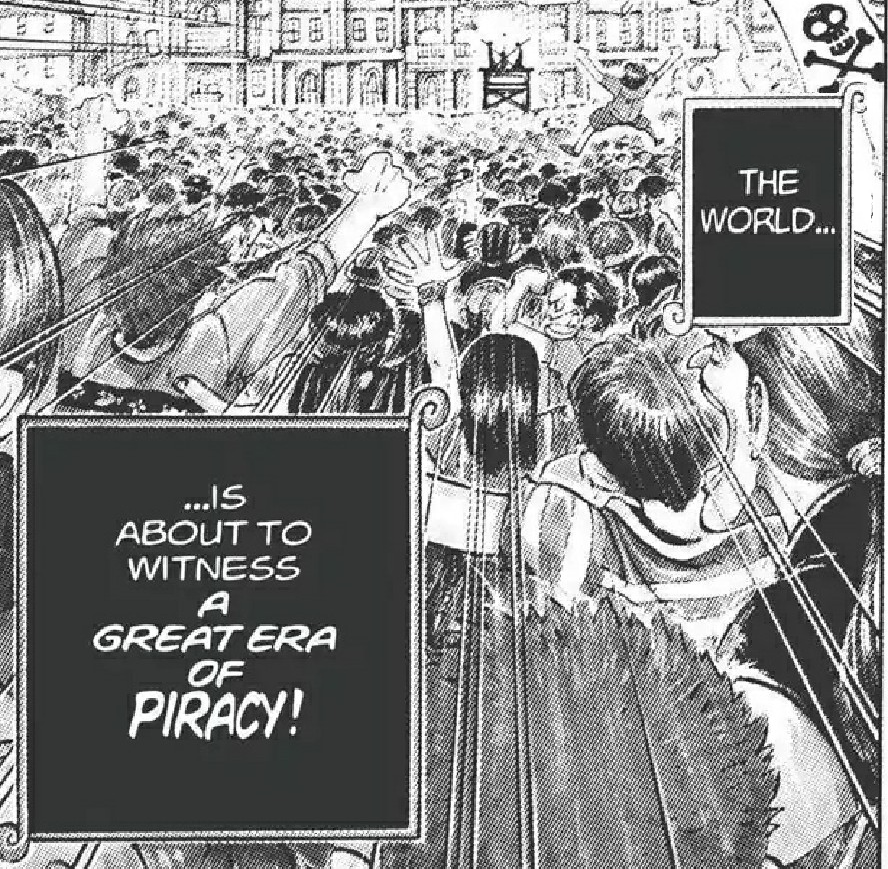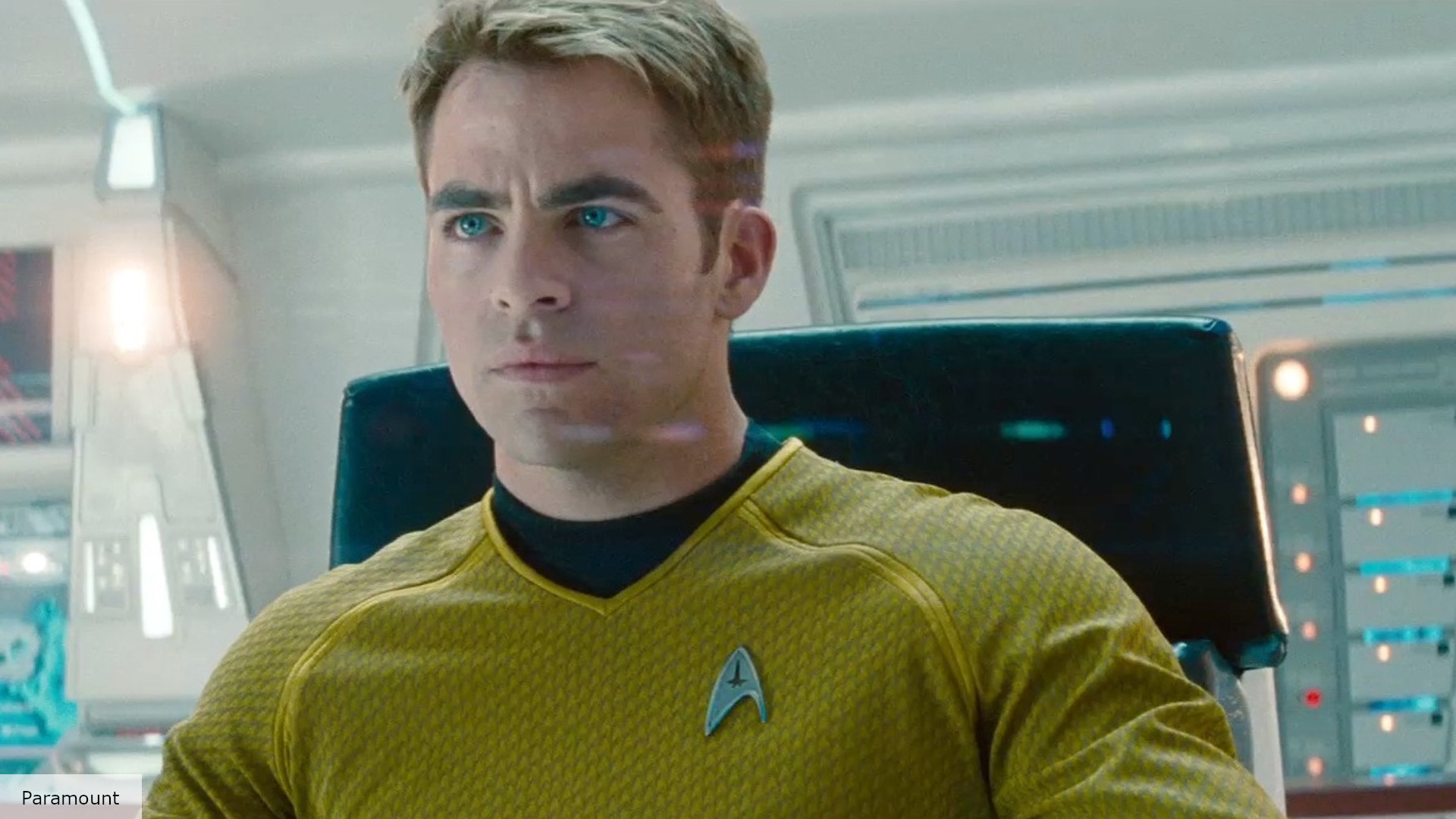Best Picture: Cavalcade
The Other Nominees: 42nd Street; A Farewell to Arms; I Am a Fugitive from a Chain Gang; Lady for a Day; Little Women; The Private Life of Henry VIII; She Done Him Wrong; Smilin’ Through; State Fair
By the sixth Academy Awards, the Academy had begun allowing ten nominees for Best Picture, a practice that continued only until 1944. I bring this up to point out the fact that there’s no way Cavalcade in in the top tenth percentile of the films listed above. I’m not going to pretend to have seen or even heard of Smilin’ Through or Lady for a Day, but A Farewell to Arms was nominated as well, and I have to believe that a Hemingway adaptation was at least accidentally better than Cavalcade. To be fair, this film isn’t a total disaster – it’s probably on par with Grand Hotel in terms of quality – and it has an impressive pedigree, as it’s based on a play by Noel Coward, one of the early twentieth century’s preeminent dramatists. But for most of its runtime, Cavalcade is pretty boring. A lot of the time it feels like nothing at all.
The bones of a good story are here. Cavalcade presents itself as the kind of sweeping, generational epic that Cimarron tried (and so badly failed) to be. It’s slightly more successful in this endeavor, largely because it has a better cast and a better script. Through the Marryots, their children, and their servants Cavalcade tells the story of Britain over the course of about thirty years. It’s smart to approach this from a more intimate vantage, and while the film is far from perfect it never really embarrasses itself. There are few things more cringe-inducing and hard to watch than massive ambition failing spectacularly (for an example of this, I will once again point you towards Cimarron; I’ll try to make this my last comparative reference, but the two films attempt similar feats*).
There’s an interesting Upstairs, Downstairs feel to the opening of Cavalcade, and it’s as good a way as any to introduce the film’s principal characters. There are the Marryots, Robert and Jane; their children, Joey and Edward; the Bridges couple, Alfred and Ellen, who are the butler and maid respectively, and it’s through these people and their lives that director Frank Lloyd tries to paint a stirring portrait of a rapidly changing country.
Make no mistake: this film is as a British as they come. It begins with Robert shipping off to serve in the Second Boer War, and that should give you an idea of how approachable this is to an American audience. There’s a lot of stiff upper lip on display, but the problems with Cavalcade start early, and remain consistent – and persistent – for the film’s 112-minute runtime. Jane breaks down in tears (the first of many, many times), and what should be a powerful, intimate scene falls flat because we just met these characters; by the time we know their names, one of them is in the middle of a breakdown.
Cavalcade is deeply unfair to its women, most of whom exist so scenes can end in histrionics. Ellen Bridges, for example, cries twice in one scene. Diana Wynyard, as Jane, has some good line readings, but her performance is on a melodramatic level that no one else in the cast is operating on. She gives a long toast in the film’s closing scene that’s quite frankly embarrassing. It’s all of a piece with the forced sentimentality on display.
The cast, for the most part, does fine. The characters aren’t fully formed enough to have much of an impact, even over a thirty-year timespan, but everyone is more or less okay, with the exception of Herbert Mundin, who as Alfred Bridges plays the best character and gives the film’s best performance. Alfred alone feels like something approaching an actual person and not a delivery vector for overwrought exposition.
The major problem with Cavalcade is its pacing. I’ve no doubt this could work well as a stage play – I’m not here to disparage Noel goddamn Coward – but Frank Lloyd’s biggest misstep is in trying to make everything bigger for a film adaptation. Lloyd is quite frankly a pretty crappy director (with one exception, a discordant, chaotic war montage that made me sit up straighter in my seat because it was by far the most innovative and directed part of the movie), operating in mostly a point and shoot style, placing far too much trust in his cast and script. For a film that isn’t a musical, Cavalcade has more musical numbers than The Broadway Melody, which was a musical. Things will move along at a nice clip, then grind to a screeching halt so we can watch Jane watch an interminable comic operetta, in which two numbers are performed in their entirety. If you cut out the musical numbers and trimmed down the turgid five-minute conversation pieces, Cavalcade would be the world’s first 90-minute epic. If you’re going to move characters through thirty years, you need to justify it, and even though Cavalcade clocks in at less than two hours it still feels overlong. It never achieves the sense of scope that epics require; it plays like vignettes.
The best parts of the film are its quietest moments. There’s an interesting contrast between two scenes, one terrible, one solid. The terrible scene takes place on a steamship, where the adult Edward Marryot and his new bride Edith Harris have a conversation about death that’s too obvious by half, and that’s before the couple moves to reveal the name of the ship: the Titanic. It’s honestly laughable, and it lands about as well as if a character in a modern film said “Nothing can go wrong today, September eleventh!” The scene is everything wrong with Cavalcade in a nutshell: in its insistence that the fates of the Marryots are tied to historical events, it becomes downright nonsensical (death is far too often used as a dramatic turning point, but the offscreen deaths start to become a running joke).
Contrast that with the breakup scene between Joey Marryot and Fanny Bridges. Ursula Jeans, as Fanny, turns in the best female performance in Cavalcade, largely because she manages not to end every scene in tears. When she breaks up with Joey, they split amicably and behave like adults. It’s a nice way to show that the events of the previous years – the death of Edward, the beginning and end of World War I, Fanny’s burgeoning show business career – have shaped them into actual people. It’s something of a synecdoche for the most successful parts of the film: paradoxically, this epic works best when it dares to be quiet.
Cavalcade is a largely forgettable, middle of the road film that you should feel safe skipping. It’s nowhere near as as bad as Cimarron, but it’s so bland and occasionally boring that I doubt I’ll think about it once I’m done writing this. The most impassioned thing I can say about Cavalcade is: it’s fine.
Previously: Grand Hotel
Next Up: It Happened One Night
*Southland Tales is also awful.






